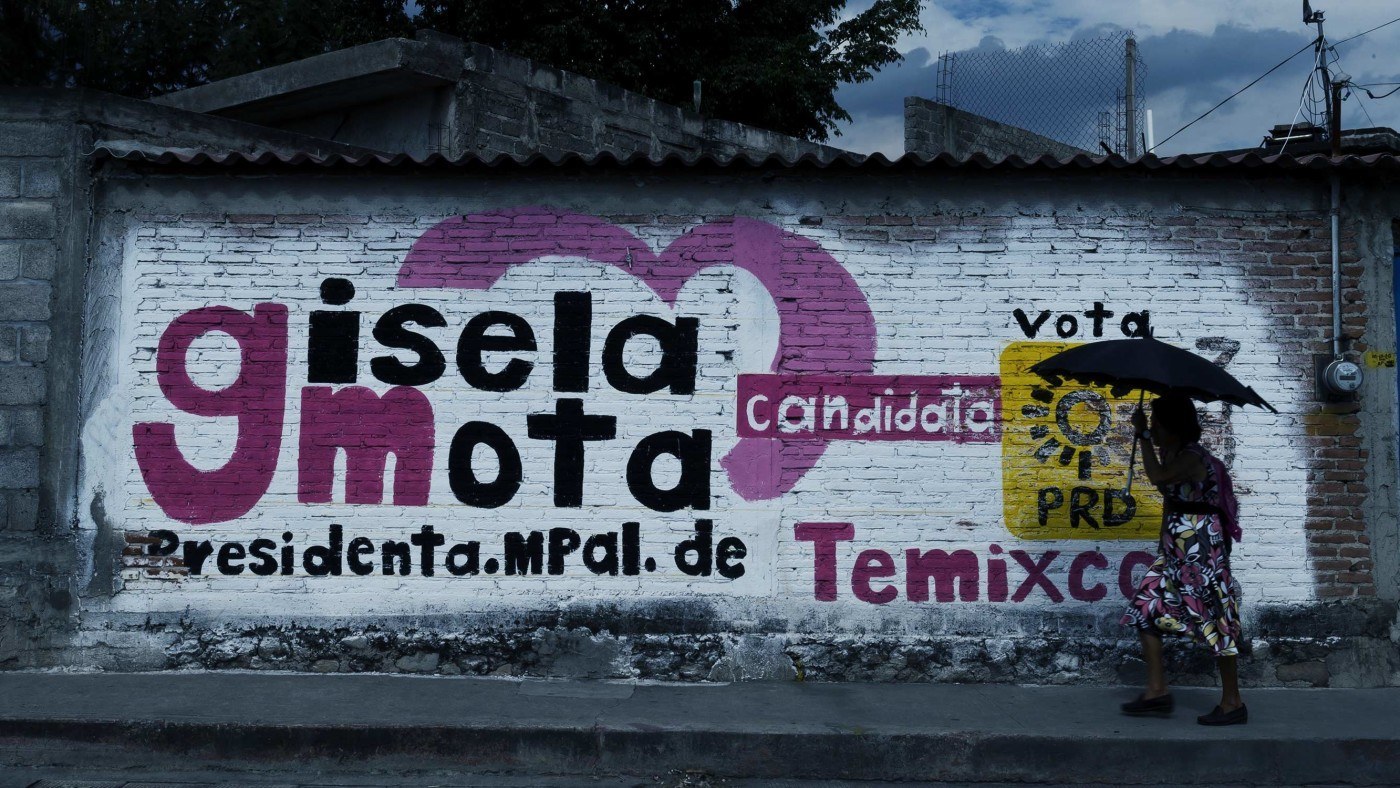The key to peace and prosperity for developing countries is democracy. This refrain is repeated across the world with a note of hopefulness, from Nigeria, which witnessed its first ever peaceful democratic transfer of power in April, to Burma, which held its first free elections in November. But for all the emphasis on supporting the electoral process, tragic events in Mexico over the weekend prove that the challenge does not end with the election or handover.
Gisela Mota, the mayor of Temixco, Mexico, was murdered on Saturday, after less than one day in office. She was 33. She was attacked by gunmen in her home, and two suspects have been killed by police, while three others have been detained. Their names have not been released, but Governor Graco Ramírez of Morelos state, where the murder took place, has blamed a drug trafficking gang known as Los Rojos.
There are many angles to this case. Some commentators, including Ana Campoy at Quartz, have noted that Mota is part of a worrying trend – nearly 200 Mexican politicians and government officials were killed between 2007 and 2014, and the most common victims are municipal officials, like Mota.
Governor Ramírez has suggested Mota was targeted because of her support for his plan to put municipal police forces under state control:
Este artero crimen es un mensaje de la delincuencia organizada contra la implementación del mando único, en #Morelos no vamos a ceder.
— Graco Ramírez (@gracoramirez) January 4, 2016
[Translation: This cunning crime is a message from organized crime against the implementation of the single control, in #Morelos are not going to give up.]
Meanwhile, other media outlets have questioned his opportunism, and accused him of using the murder for his own political ends.
Perhaps the most heart-breaking response has been from author Don Winslow at Esquire, who breaks down the situation in harrowingly simple terms: Mexico’s drug conflict is systemic; municipal mayors appoint police chiefs; drug cartels want people they can control in these positions; mayors who do not cooperate or cooperate with rival cartels are killed. Referring to the more than one hundred mayors who have been assassinated over the past decade, he writes: “It wasn’t a matter of taking a bribe or not, it was a matter of taking a bribe or a bullet.”
This threat of violence underpins not just politics in Mexican society, but daily life. The Legatum Institute, which publishes the annual Prosperity Index and champions democracy, tweeted this on Monday:
Mayor #GiselaMota killed after one day: here’s #Mexico‘s dire #ProsperityIndex safety rank https://t.co/LPcVo1no1m pic.twitter.com/SSj5u5oF1n
— Legatum Institute (@LegatumInst) January 4, 2016
Mexico, which scores relatively highly in terms of its economy, is brought down by its failures in personal safety. With the constant intimidation from the drug cartels in some states, backed up by corrupt police forces and ineffectual politicians, everyday trade and commerce becomes disrupted.
Is it possible for democracy to prevail under such circumstances? Is “democracy” even a useful concept, when voters know their candidate could be killed the day after inauguration? During her election campaign, Gisela Mota vowed to fight organised crime and clean up Temixco. Now she is dead. Whatever the reasons behind her murder, it sends a clear message to government officials, present and future, and to ordinary voters.
Mexico is rising. The country that was an economic basket case for the final decades of the last century is now the world’s fifteenth largest economy, and today more people migrate from the US to Mexico than the reverse. But while Mexico’s economy has flourished, Gisela Mota’s murder shows that in terms of stability, the rule of law, and democratic governance, the country has far to go.


